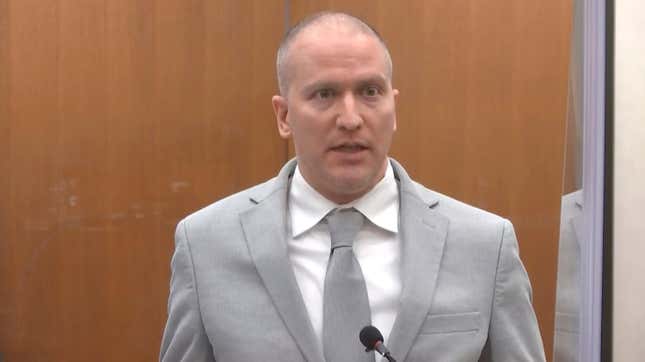Derek Chauvin Sentenced To 22.5 Years In Prison For the Murder of George Floyd
The sentencing comes two months after Chauvin was found guilty of all counts against him.
Latest

A judge has sentenced former Minneapolis police officer Derek Chauvin to a prison sentence of 22.5 years for the 2020 murder of George Floyd, a Black man whose death sparked global protests against police brutality and racism.
“I’m not basing my sentence on public opinion,” said Judge Cahill. “I’m not basing it on any attempt to send any messages. The job of a trial court judge is to apply the law to specific facts and deal with individual cases.”
In April, a jury found Chauvin guilty of second-degree unintentional murder, third-degree murder, and second-degree manslaughter. His sentencing was based on the most severe charge, which, according to Minnesota state guidelines, would have landed Chauvin a 12 and a half year sentence. However, Judge Peter Cahill believed that aggravating factors—the presence of children, Chauvin’s position as an officer—warrants a harsher sentence.
The sentence is somewhat lighter than the 30-year sentence prosecutor Matthew Frank hoped for, however. “This is not a typical second-degree murder,” he said in court on Friday. “This is egregious… this is the time for our criminal justice to say, ‘we hear you.’”
-

-

-

-

-

-

-

-

-

-

-

-

-

-

-

-

-

-

-

-

-

-

-

-

-

-

-

-

-

-

-

-

-

-

-

-

-

-

-

-








































